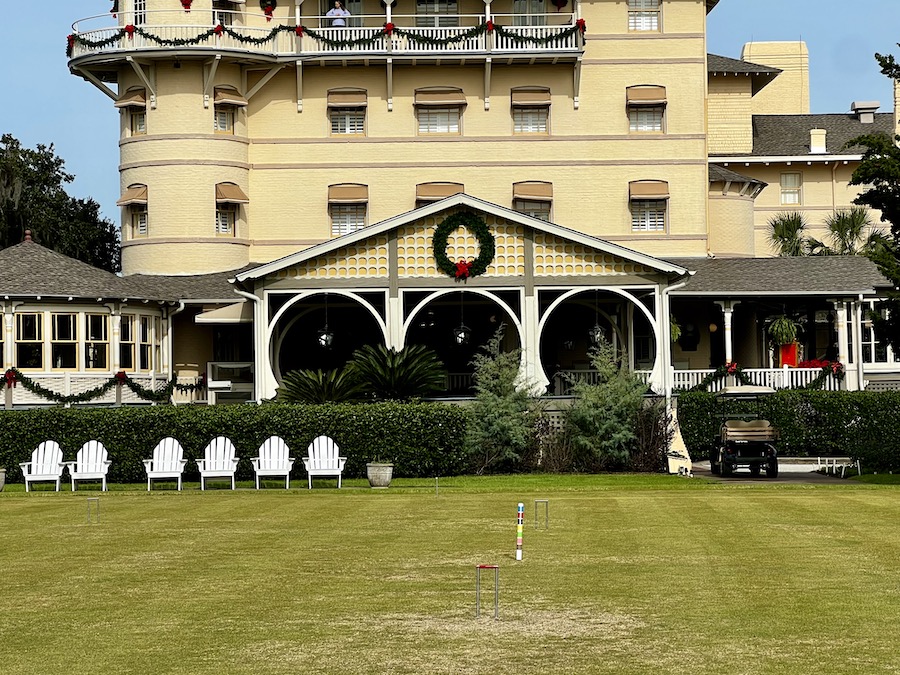
Where history, finance, and culture meet,
Where Masters of the Universe compete,
Connect, collaborate, convene, create,
Casting the die of history its fate.
Aldrich, Andrew, Vanderflip, Norton, Strong,i
Titans of Empire yielding powers of Gods,
Their higher purpose an informal law,
Power wielded not for justice but awe.
New World dynasties reimagined royalty,ii
Shared WASP heritage imbued loyalty,iii
Control of destiny thy main objective,
Forged by panicked demos, shield protective.
All the while, just outside the window frame,
Singing birds, gardens, tennis, and croquet,iv
Pass-temps libres commune friends with Nature,
Perishing the divide ‘tween His creatures.
Games then as now, weave us tight together,
Even when it’s casinos called “tether,”v
Open theatres to coordinate,vi
Grand strategies and tactics dominate.
They played against Napolean and Khan,
UPAs against shawty691
Magic internet points, dual-use tech,
Tracking flows of foes, intended to wreck.
We do not fear death, only dishonour,vii
That we may see light around the corner.
As when the Northern skiesviii
Gleam in December;
And, like the water’s flow
Under December’s snow,
Came a dull voice of woe
From the heart’s chamber.
“I was a WASP old!
My deeds, though manifold,
No Skald in song has told,
No Saga taught thee!
Take heed, that in thy verse
Thou dost the tale rehearse,
Else dread a dead man’s curse;
For this I sought thee.”
- The attendees of the infamous and secretive Jekyll Island Meeting in 1910 that laid the foundation for the creation of the US Federal Reserve System in 1913 were as follows:
- Nelson W. Aldrich: A U.S. Senator and the chairman of the National Monetary Commission. Aldrich was a key figure in the push for banking and monetary reform in the U.S.
- Abraham Piatt Andrew: Assistant Secretary of the U.S. Treasury. Andrew had significant experience in banking and economics.
- Henry P. Davison: A senior partner at J.P. Morgan & Co. Davison was a highly influential banker.
- Charles D. Norton: President of the First National Bank of New York, one of the most powerful banks in the country at the time.
- Benjamin Strong: Head of J.P. Morgan’s Bankers Trust Company. Strong would later become the first president of the Federal Reserve Bank of New York.
- Frank A. Vanderlip: President of the National City Bank of New York, which was, at the time, one of the nation’s most powerful financial institutions.
- Paul M. Warburg: A partner at Kuhn, Loeb & Co., Warburg was a German-born [jewish] banker and an expert on central banking systems. He was one of the most forceful advocates for the creation of a central bank in the U.S.
- Late 19th and early 20th century WASP royalty was on another level from the charlatans and wannabes like the Kardashians and Swifts of the 21st century. For the record, this is the bar:
↩ - The social technology of the WASP-powered Gilded Age was shared traditions and values, as well as an envy of and aspiration towards the culturally embedded supremacy of the monarchs of Europe. And they fought together! Like Singapore or Israel do today, but which is a faint memory in our current cargo cult era in the Americas. Or is it?? WASPs transitioned from dominating industry to locking in their influence via the Deep State, Ivy League, and “non-profits,” as Michael Lind describes in-depth for Tablet Mag (emphasis added):
Driven from the White House for half a century after 1932, marginalized in Congress and circumvented by federal state capitalism, the Northern mainline Protestant elite managed to preserve its dominance in three areas: The “Deep State,” the major nonprofit foundations, and elite prep schools and universities. In the movie The Good Shepherd (2007), Joe Pesci’s Mafioso says to Matt Damon’s WASP CIA agent: “You know, we Italians have our families and the church, the Irish have the homeland, the Jews their tradition, the [Blacks] their music. What do you guys have?” Damon’s character replies: “We have the United States of America. The rest of you are just visiting.”
In addition to the “Deep State,” other national institutions that the neo-Jacksonians of the New Deal coalition never conquered in their revolution against Yankeedom include the major nonprofit foundations like Ford and Rockefeller and the Ivy League universities. The culture of what might be called the NGO-academic-spook complex remained deeply rooted in the Social Gospel wing of Northern mainline Protestantism of the early 1900s.
The Social Gospel progressivism these institutions have long embraced is a Janus-faced tradition. One face is technocratic, holding that social and global conflicts, rather than reflecting the tragic nature of human existence, are “problems” which can be “solved” by nonpartisan experts guided by something called “social science.” The other face of Social Gospelism is irrational, and rooted in post-millennial Protestant theology convinced that we are on the verge of a world of peace and prosperity, if only wicked people at home and wicked regimes abroad can be crushed once and for all.
This mentality with its bizarre synthesis of science-inspired technocracy and millenniarian zeal, was shared by many turn-of-the-century Progressives, including Woodrow Wilson, a Southern-born Northern transplant. As Dorothy Ross points out in The Origins of American Social Science (1990), Wilson, like many leading American Progressives, was the child of a mainline Protestant minister.
Shedding its specifically Northern mainline Protestant cultural attributes, a version of Social Gospel Protestantism has mutated into the secular religion of wokeness, the orthodoxy of the universities and the increasingly important nonprofit sector. Its converts include many of the affluent white secular children and grandchildren of members of mainline Protestant denominations like the Episcopalians, Presbyterians, and Methodists, which are hemorrhaging membership to the category of religious “nones.”
By evolving from an ethnoregional culture into a crusading secular creed disseminated by the universities, the public school system, the corporate media, and corporate HR departments, post-Protestant wokeness is capable of assimilating anyone, of any race or ethnicity, native-born or immigrant, who is willing to conform to its weird rituals and snobbish etiquette. The Long Island lockjaw accent has been replaced by the constantly updated “woke” dialect of the emerging American elite as a status marker. You may have an Asian or Spanish surname, but if you know what “nonbinary” means and say “Latinx” (a term rejected by the overwhelming majority of Americans of Latin American origin) then you are potentially eligible for membership in the new national ruling class.
The recent conversion to wokeness of the legacy media and big business can be attributed to the increasing reliance of both sectors on a few prestige universities to recruit their top staff. In living memory, if you wanted a job in a prestigious law firm or company in Dallas or Atlanta, you would do well to attend the local state or elite private university, to make connections with the offspring of the local gentry; being an Ivy League graduate, far from being a plus, might well be held against you. The nationalization and globalization of American business, however, has produced a new, increasingly homogeneous managerial elite filtered through a small number of Ivy League schools and high-status public universities, which serve as finishing schools for the woke overclass.
Although the woke managerial culture in the United States has lost most of the vestiges of its Yankee mainline Protestant origins, the emerging American national oligarchy has the same enemies as the old New England-Midwestern WASP oligarchy: white Southerners, Catholic white ethnics and observant Jews.
Indeed, we’re living in a Post-Protestant theocracy of “nation-state progressive liberal democratic values”. Because there’s no such thing as a nation without religion! Secularism shmecularism… And sure enough the WASP elite have oh-so-cleverly evolved from their Gilded Age extravagance to forge a new nation of impoverished believers. Pretty crafty pivot eh. Hidden in plain sight, indeed!
So is it any wonder that Bezos, Musk, Zuckerberg, and Altman all get regularly shaken down in the media, by Congress, and by almost every three-letter agency in existence? The “21st century robber barons” are distinct political rivals… so off with their heads!
Last year, after Elon Musk acquired Twitter, President Biden gave federal agencies the green light to go after him.
And they have.
Today, the FCC adds itself to the growing list of federal agencies engaging in the regulatory harassment of Elon Musk.
I dissent. pic.twitter.com/1zEoGCwiNk
— Brendan Carr (@BrendanCarrFCC) December 12, 2023
Which, incidentally, also goes some ways towards explaining “The Great Replacement” and similar “progressive” agendas. My enemy’s enemy is my friend innit? All of which is to say there’s the WASPs… and then there’s the rest of us crabs in the bucket. ↩
- Speaking of croquet, click to play! Mitchell F. Chan (of IKB fame) crafted this fun and quick computer game, weaving together politics and history with a perfectly wry sense of humour. Recommended!
- What, you might ask, is the social technology of the Blockchain Age: Pseudonymity? Voluntaryism? Gypsyism? Parties where your eyes burn up? ↩
- It’s really wargames all the way down. ↩
-
↩ - To quote (and slightly paraphrase) from the great Henry Wadsworth Longfellow and his poem “The Skeleton in Armor.” ↩

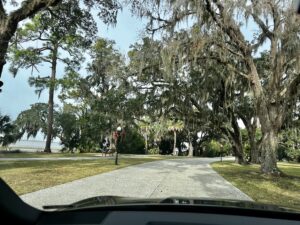
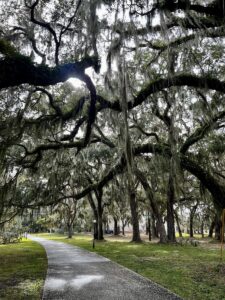
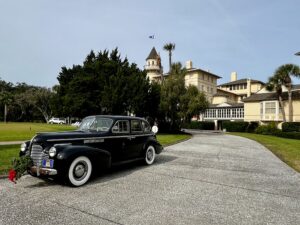
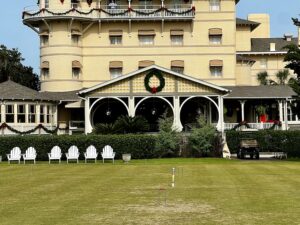
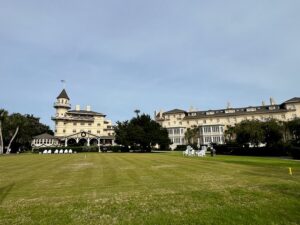
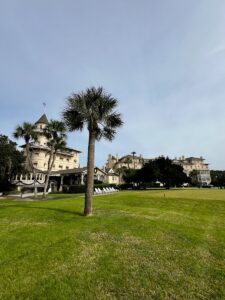
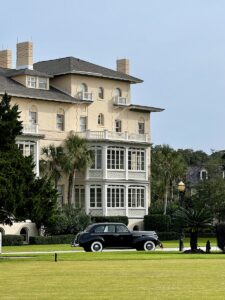
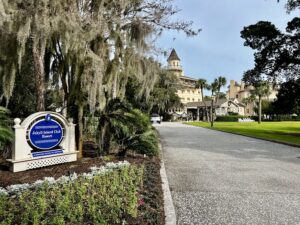
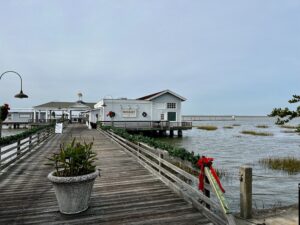
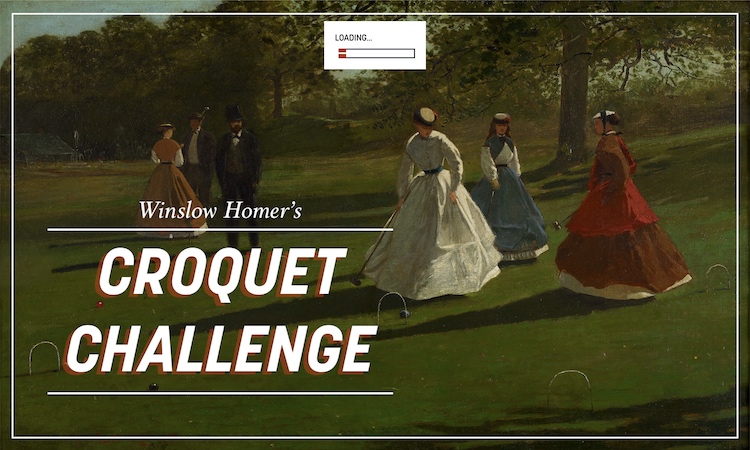
[…] topography dominates Dictates values of domus and dynastyii Gilded spoils turn poison arrows Target: roots and […]
[…] History: our context (of contexts) Our blockchain, our blog Memory, written record Even pseudonymous salvation? […]
[…] mattered on Jekyll Island in 1910 and I assure you that our species(es) hasn’t evolved all that much in the last century! A few […]
[…] The present exhibition “Mark Rothko: 1903-1970” is exceptional, charting the course of the singular painter’s career from his birth in Tsarist Russia in 1903, to his family’s escape to the Land of the Free in 1913, to his struggles at Yale in the 1920s with figurative and landscape painting, and to his eventual evolution towards abstraction in New York, engaged with the intellectual and cultural milieu that was post-WWII era America, what with its last gasps of WASP-powered cultural coherence. […]
[…] there’s a moral argument to be made that the now-declining and increasingly centralising western empires at present should aim for a soft landing so as to minimise damage,” but on the flip side of […]
[…] attempt to unpack our current sociopolitical moment, let’s take a look at where we were with Peak WASP Culture in the Jekyll Island Era more than a century ago, the fumes of which carried us well enough through until the early 1970s, […]